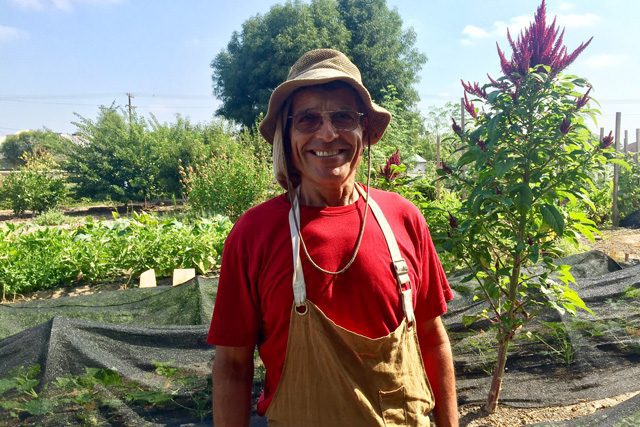
By Colonel Bill Luttrell –
It was without a doubt a lifelike resemblance to the Pilgrims’ first Thanksgiving dinner, with rows of long tables decorated in multicolored fall leaves, stretching out into an open field, set for nearly 100 diners who joined together on a glorious Thanksgiving day in 1970.
While serving at the Manhattan Project in Los Angeles, the ingenious director, the late Ed Boyle, had orchestrated every detail of transporting the residents, the food and the equipment for this residential treatment program, from West Los Angeles to this “Field of Dreams” near San Luis Obispo.
The all-encompassing phenomena of this feat are too numerous to recount here; suffice it to say, it was nothing short of a miracle! The residents and staff were able to celebrate a meaningful time of Thanksgiving away from the troubles and difficulties of life which had become a daily challenge for them, and they enjoyed every minute of it.
As significant as this memory is, it reminds me of our tendency to relegate the celebration of Thanksgiving to one day of the year, or at best to a four-day weekend. The traditional focus is often directed toward a table spread with an exorbitant amount of food along with the gathering of family and friends (some of whom have not shared together since the last holiday).
The element of giving thanks is usually limited to a prayer, and perhaps an expression of what it is we are thankful for on this day. The troubles and hardships of life are left unattended, and there is no anticipation or dream of what might spark our hopes and promises for the future.
For the believer, the Word of God instructs us in yet another approach to giving thanks which is more in keeping with what it is God wants to accomplish in and through our ministry to others.
Paul’s admonition in I Thessalonians 5:6 encourages us to “give thanks continually, in all things.” This immediately raises the question as to the feasibility of this expectation. We all have troubles, challenges and hardships, and to give thanks is not quite in keeping with our human tendencies.
However, if we look at Paul’s writings more closely we see how this expectation of “thanksgiving” can be nurtured in our spiritual development. First, “Be joyful always…” is the hallmark for the believer. “Joy” identifies the nature of God’s love and blessing in the life of his children. “Always” transcends the nature of man to the nature of God. Sought after but not easily found in the world, “joy” prepares the way for thanksgiving.
Paul continues in healing our spiritual understanding with instruction to offer “thanksgiving in all things.” We must not only be “joyful always,” but we are to “pray continually.” Does this require that we lock ourselves away, to do nothing but pray? Certainly not! Prayer is to become an ever-present attitude in our hearts and minds, so that our ready response becomes his response to the world in which we live.
“Joyful always…pray continually…” envisions and plays itself out in “thanksgiving in all things.” This is a process that the Holy Spirit develops within, so that God will be glorified in us and his work manifested through us.
Let’s not wait for the annual Thanksgiving feast to express our thanks to God and to each other. He is desirous that we reflect this expression “…continually, always, with joy and prayer.”
Happy Thanksgiving–today and always.
“Let the peace of Christ rule in your hearts, since as members of one body you are called to peace. And be thankful.
“Let the word of Christ dwell in you richly as you teach and admonish one another with all wisdom, and as you sing psalms, hymns, and spiritual songs, with gratitude in your hearts to God.
“And whatever you do, whether in word or deed, do it all in the name of the Lord Jesus, giving thanks to God the Father through him.” Colossians 3:15-17 (NIV)











